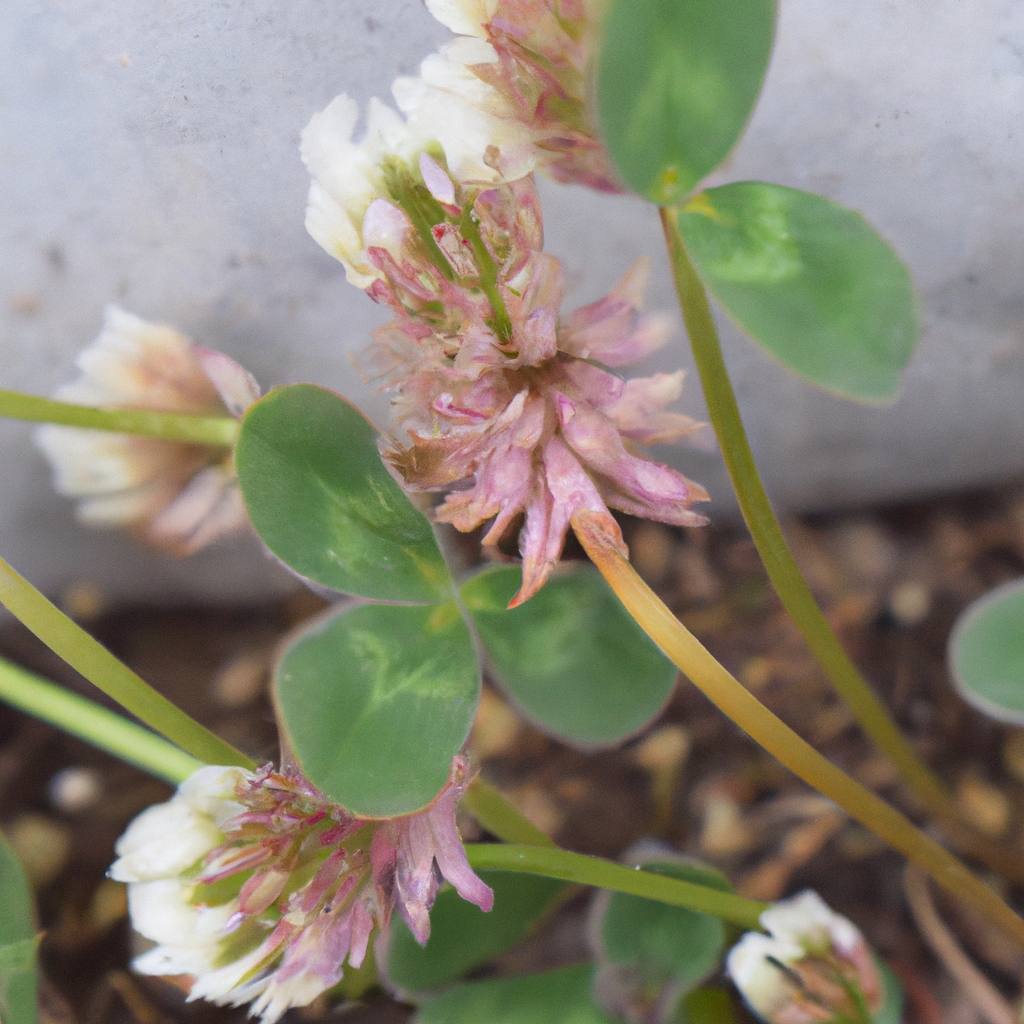Biological Name:
Trifolium arvense (Rabbitfoot-Clover)
Natural Habitat:
Rabbitfoot-Clover is a clover species with small, white or pink flowers and hairy leaves. It is often found in pastures and is a popular food source for rabbits and other grazing animals.
Description:
Rabbitfoot-Clover is a low-growing perennial weed with small clover-like leaves and white or pink flowers. It is commonly found in lawns fields and other areas with moist fertile soil.
Frequently Asked Questions (FAQs)
Q: Is Rabbitfoot Clover invasive?
A: It is widespread in the eastern and pacific areas of North America. It is a nitrogen fixation plant and has been used as a cover crop in low nitrogen soils. Sheep and goats will graze the leaves. It is also considered an invasive plant in other areas.
Source
Q: Does clover spread by mowing?
A: Clover grows best in grass less than 3 inches tall. This height stresses your grass, making it easier for clover to spread. Mowing your grass high gives it an advantage, making it easier for it to outcompete the clover.
Source
Q: Will clover eventually take over grass?
A: Clover can take over areas of your lawn where grass is thinning or has turned brown. The fix: Regularly aerating your lawn loosens your soil and gives grass roots room to breathe and nutrients to thrive. With grass growing strong, there won’t be bare spots for clover to infiltrate.
Source
Q: Which clover has the deepest roots?
A: uniflorum accessions were generally the deepest out of all the clover entries, and roots of the two hybrid entries were also deeper than those of the white clover cultivars (Fig. 2).
Source
Q: Does clover have to be replanted every year?
A: There are two main groups of clover: perennial and annual. Perennial clover is the more popular option since annual clover dies out more quickly. With perennial clover, you will need to reseed every two to three years. Annual clover will need to be reseeded every year.
Source
Q: How long does it take clover to spread?
A: The clover will start sprouting in as little as two to three days, but can take up to seven to 10 days depending on the temperature. Keep the area watered and moist where the seeds have been spread.
Source
Q: Does micro clover survive winter?
A: In some locations, microclover goes dormant in the winter and won’t retain its lush look year round, so blending with other plants can extend your lawn’s green look. Portland landscaper, Max Floyd of Earth, Water & Wood, recommends mixing micro clover with dwarf fescues for an easy care option.
Source
Q: Is Hare’s-foot clover poisonous?
A: Liver damage occurs after prolonged ingestion of hare’s-Foot Clover.
Source
Q: Which clovers are toxic?
A: Clover toxicity is caused by ingestion of alsike clover (Trifolium hybridum) or red clover (Trifolium pratense), resulting in signs of photosensitivity and liver failure.
Source
Q: Which clover produces cyanide?
A: White clover releases toxic cyanide when its leaf tissues are damaged. This chemical defense, a response called cyanogenesis, helps it to deter insect pests. Research published in New Phytologist shows how white clover developed its anti-herbivory superpower with input from both of its seemingly innocuous parents.
Source
Q: Are clover weeds poisonous to dogs?
A: A: All clovers have been noted as being potentially poisonous to pets if they constantly graze. Chemicals used on grass are also harmful.
Source
Q: Is clover flower poisonous to humans?
A: While wild clover is considered poisonous to humans in large quantities, in small quantities, clover is both edible and potentially beneficial to your health.
Source
Q: What kind of clover is poisonous to cattle?
A: Sweet clover contains a high level of a chemical that can be converted to an anticoagulant. Improperly curing hay made from certain sweet clover varieties such as white and yellow sweet clover can cause severe and often fatal hemorrhages in livestock such as cattle, sheep and goats.
Source
Q: Is hares foot ink cap edible?
A: The Hare’sfoot Inkcap is reported to be inedible, but in any case the caps are so insubstantial that there is no real incentive to give them a try.
Source
Q: Can rabbits eat rabbit foot clover?
A: The foliage is also eaten by some mammals: these species include rabbits, groundhogs, deer, horses, cattle, and sheep. Because the flowerheads of Rabbit-Foot Clover are exceptionally hairy, their consumption can damage the health of horses and domestic livestock by causing abdominal obstruction.
Source
Q: Can humans eat clover?
A: While wild clover is considered poisonous to humans in large quantities, in small quantities, clover is both edible and potentially beneficial to your health.
Source
Q: Which clover is best for rabbits?
A: Rabbits eat clover leaves with relish. Clover is a preferred food of rabbits and provides much of the nutrition they need during warmer parts of the year. Cottontails will eat a variety of clover including white clover ​(Trifolium repens L.). ​ Clover hay for rabbits is a favorite offering for pet bunnies.
Source
Q: Does clover keep rabbits away?
A: Rabbits love clover and violets, plants that most people work to remove from lawns and planting beds. Let these plants grow, at least in a few places, and rabbits will tend to feed on these first before they hit your prize petunias.
Source
Q: What animals eat clover?
A: Quail, grouse, wild turkey, partridge, marmot, and woodchuck (especially when alfalfa is in short supply), prefer leaves, seeds, and sometimes the whole plant. Songbirds eat clover seeds. Small animals such as squirrels, mice, and gophers enjoy flower pods and foliage, and deer browse on the entire plant.
Source
Q: Can chickens eat clover?
A: So in short, clover is a wonderful addition to your flocks’ diet. Don’t shy away from offering clover, preferably mixed with other weeds and grasses if you are cutting the clover and hand feeding. Your chickens will know how much they need for the nutrients and eat accordingly.
Source
Q: Can clover handle foot traffic?
A: Clover does not hold up to REPEAT high traffic – For the most part, white clover handles heavy foot traffic pretty well; BUT, if your yard is walked or played on frequently in the same general area (as with most grasses), a white clover yard can end up half dead and patchy.
Source
Q: How poisonous is clover?
A: The clover plants themselves are non-toxic and it is the fungus that contains the toxin slaframine that causes the undesirable symptoms in horses.
Source
Q: Will clover take over grass?
A: Clover can take over areas of your lawn where grass is thinning or has turned brown. The fix: Regularly aerating your lawn loosens your soil and gives grass roots room to breathe and nutrients to thrive. With grass growing strong, there won’t be bare spots for clover to infiltrate.
Source
Q: Does clover grow better than grass?
A: Clover also tolerates compacted soil better than lawn grasses. When it comes to weeds, diseases and pests, clover/grass lawns have the advantage as well. Clover can help out-compete weeds and is resistant to most diseases and pests, especially chinch bugs and white grubs.
Source
Q: Should I leave clover in my garden?
A: Clovers can protect soil from wind and water erosion. When used as a cover crop or green manure, decomposing clover adds large amounts of organic matter to the soil. Clover also adds nutrients to your soil, and reduces your need for fertilizers. Clover acts as a natural mulch to protect your soil.
Source
Q: What are 3 different types of clovers?
A: White clover (Trifolium repens)Red clover (Trifolium pratense)Strawberry clover (Trifolium fragiferum)What is nitrogen-fixing?
Source
Q: Is clover poisonous to humans?
A: While wild clover is considered poisonous to humans in large quantities, in small quantities, clover is both edible and potentially beneficial to your health.
Source

